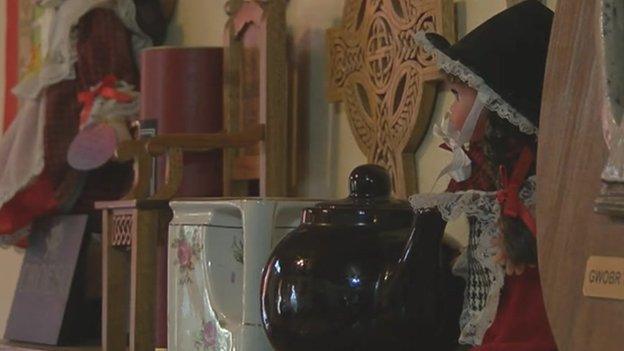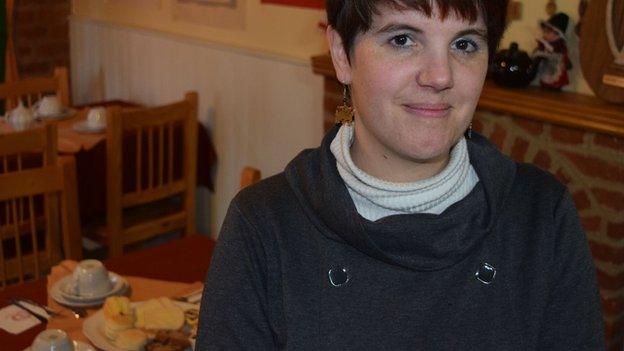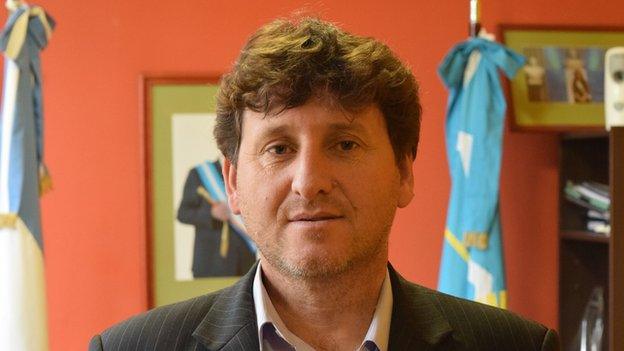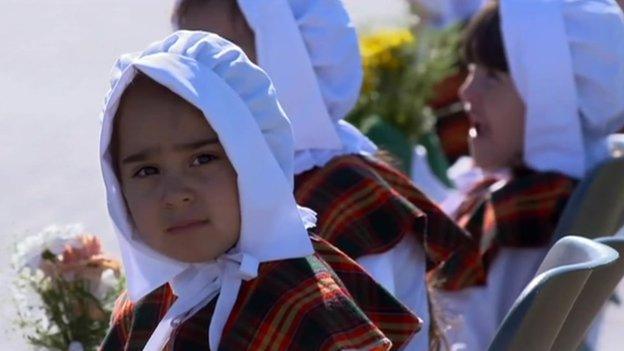Patagonia's Welsh tearooms 'very important' for tourism
- Published

Welsh tearooms are popular tourist attractions in the Patagonian town of Gaiman
Welsh tearooms are somewhat of a phenomenon in parts of Patagonia, Argentina.
During the 19th and early 20th Century, emigrants from Wales settled here, hoping to create a haven for their language, culture and faith.
Today, the town of Gaiman in the east is where the link with Wales is at its most visible. Homes and businesses have Welsh names and display Welsh flags. And it's here you'll find the highest concentration of Welsh speakers in the region.
Ana Chiabrando Rees's family started the first Welsh tearoom in the town in 1944.

Ana Chiabrando Rees's family have run tearooms for over 70 years
Mountains of bread and butter and cakes are served alongside large pots of tea.
"Tearooms are very important here," she says, "Everyone in the country knows about them."
"I love Welsh history and I love telling people about it."
Ana Chiabrando Rees's family started the first Welsh tearoom in Patagonian town of Gaiman in 1944
The tearooms are an example of the commercial value of the Welsh connection in Patagonia.
'Language of my heart'
Gaiman attracts tourists in their thousands every year, mainly from Argentina but also "from all across the world", Ana explains.
"If they know about Wales they come and say 'oh, wow this is like Wales!' If not they like it here because it's different," she says.
Anna's ancestors were Welsh settlers. She has learnt Welsh and describes it as "the language of my heart".
It was 150 years ago on 28 July when about 160 Welsh emigrants arrived in Argentina aboard the Mimosa tea-clipper.

Mayor Gabriel Restucha wants to strengthen links with Wales
But not everyone who runs a traditional Welsh tearoom here has links with Wales. They are running successful businesses in a place where 'Welshness' sells.
Gaiman's mayor, Gabriel Restucha, a Welsh speaker himself, says the town's economy owes a great deal to its heritage.
"Of course the tourist side of things helps us a lot," he said.
"That's why we've been fixing an historic tunnel, doing something with the old railway.
"If I'm elected mayor again next year I want to keep on strengthening the links with Wales and our history."
- Published27 July 2015
